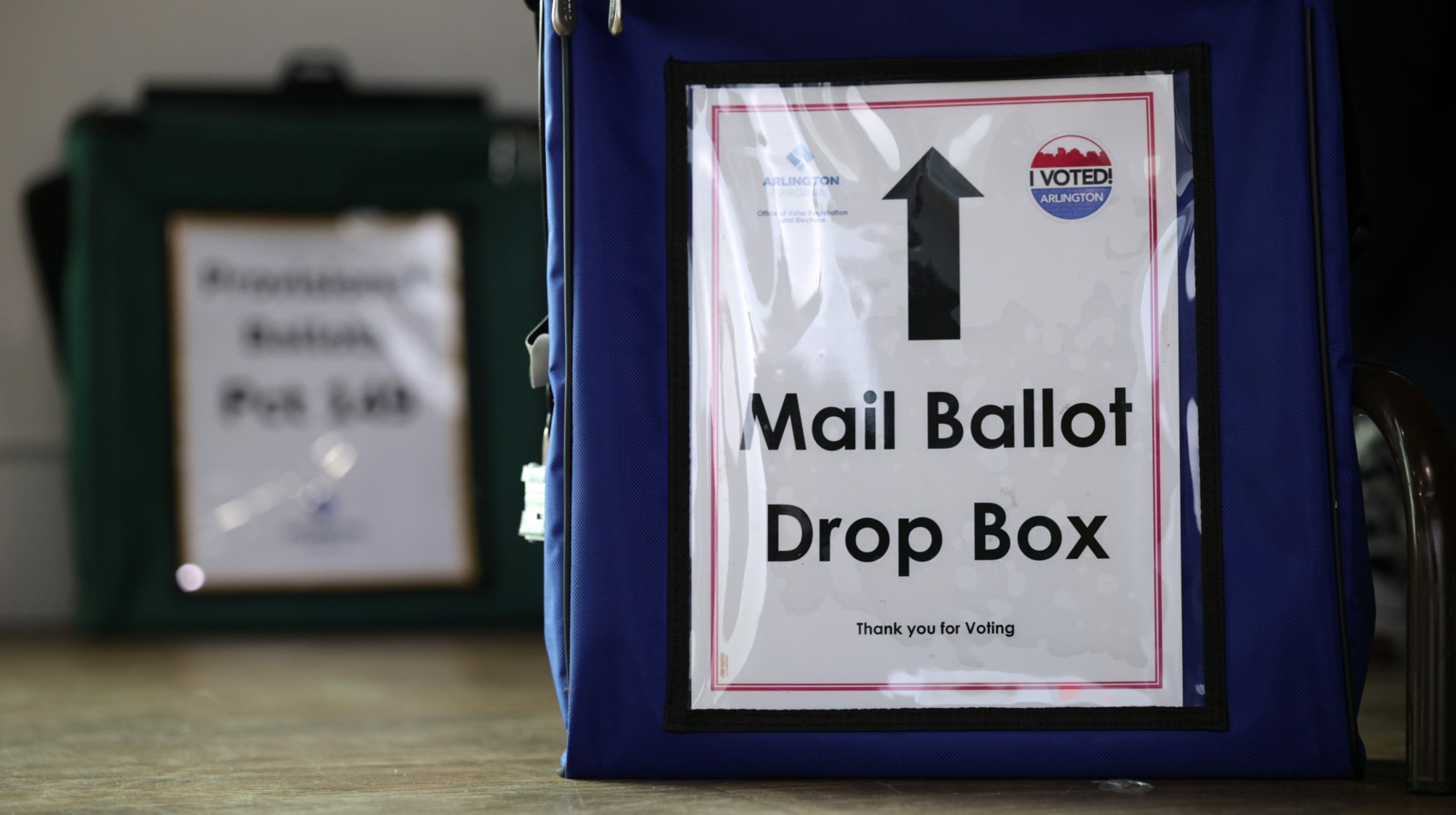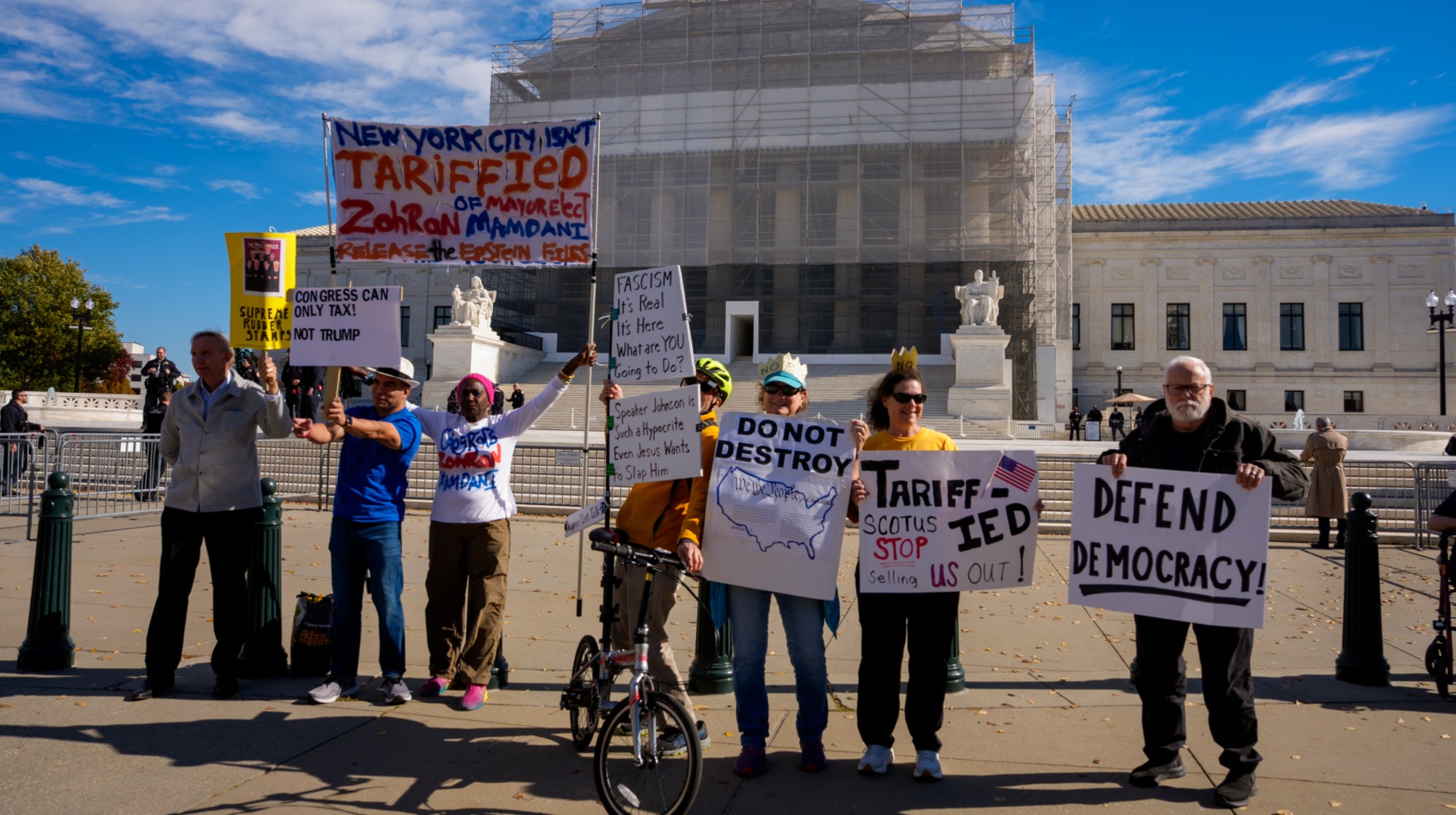A creative solution for saving labor rights
How can lawmakers protect organizing rights against a hostile Supreme Court? Buy them.


A free daily email with the biggest news stories of the day – and the best features from TheWeek.com
You are now subscribed
Your newsletter sign-up was successful
With Cedar Point Nursery v. Hassid decided this past Wednesday, the Supreme Court struck down as unconstitutional a California regulation allowing union organizers access to corporate farms to inform farm workers of their rights under state labor law.
Arguing that the "right to exclude" is "a fundamental element of the property right," Chief Justice Roberts radically expanded the court's "takings" doctrine to cover almost any regulation giving third parties access to business property. This could bring a wrecking ball to a wide range of existing laws, including rules requiring hospitals to take unwanted poor patients, laws requiring landlords to accept Section 8 tenants, and a wide swathe of other regulations governing who businesses must allow to access their property.
The decision continues a march of conservative judicial decisions voiding local laws that restrict corporate power or protect workers rights in favor of "rights" for corporate interests. However, there is a way for progressives to respond that even the right-wing court will find hard to strike down, namely using government's power of taxing and spending to reframe its regulations touching on property rights.
The Week
Escape your echo chamber. Get the facts behind the news, plus analysis from multiple perspectives.

Sign up for The Week's Free Newsletters
From our morning news briefing to a weekly Good News Newsletter, get the best of The Week delivered directly to your inbox.
From our morning news briefing to a weekly Good News Newsletter, get the best of The Week delivered directly to your inbox.
Using the power of the purse
The key is in the wording of the Fifth Amendment, which says "[N]or shall private property be taken for public use, without just compensation." Even if the court blocks property regulations under the Fifth Amendment, government can always purchase access to the property in question, what is known as an "easement" for temporary access by third parties.
The only question is at what price.
In the case of the California union access regulations, given that the access was limited in both how often the union could access the property and where they could go, even the conservative justices implied the compensation required might not be that much in this case. Responding to the dissent making the case that such limited intrusions should not be considered a property rights violation, Roberts argued the limited time of the violation "bears only on the amount of compensation due."
Notably, Roberts cited an earlier case from the 1980s, Loretto v. Teleprompter Manhattan CATV Corp., which had struck down a New York regulation allowing companies to install cable wires over the objections of landlords. Unmentioned was that the state of New York responded to the Supreme Court ruling by continuing the regulations while compensating landlords going forward – to the tune of just $1 for each building wired for cable. The state argued that the wiring actually increased the value of landlord property, so that was all they were owed. This compensation amount was ratified by lower courts.
A free daily email with the biggest news stories of the day – and the best features from TheWeek.com
While California can probably not argue that union organizers being allowed periodically onto corporate farm property increases the value of the land, they can argue that it does not substantially diminish its value, so the compensation need not be large.
And even if court proceedings found that more substantial compensation was warranted, there is nothing in the Cedar Point finding that would prevent the state from assessing taxes on all farm operations to cover the costs of the compensation mandated by the courts.
If it seems perverse that takings law could demand compensation for a landowner from the government, while government can then tax that same landowner to meet the compensation requirement, that contradiction has long been discussed. Years ago, legal scholar Eduardo Peñalver argued that "any regulation that can easily be translated into a permissible tax should not be deemed a taking in need of compensation" for this very reason.
The best logic for takings compensation is where one landowner is treated differently from other similar landowners, as in some land use and environmental regulations that have been blocked by the courts, as in the Lucas v. South Carolina Coast Council decision. But that's very different from a general land use regulation as with the California union access regulation – which is why scholars like Penalver would note courts had generally avoided rulings like Cedar Point in the past.
The ongoing danger of Cedar Point
So, if California can substitute a tax on farm owners to cover the cost of easements for organizers, what will the conservatives on the court gain from Cedar Point?
In a Democratic state like California, maybe little, assuming state leaders have the political will to enact the necessary property and tax law changes necessary.
But as the courts strike down a range of laws at the state and federal level, GOP control of legislative chambers in many states may block replacement legislation. And political fights for compensation to pay for access in tenant and indigent health care laws, particularly involving undocumented residents, may be used to flame more racial outrage among the conservative base.
Debates and litigation over the compensation required for access to employer property will be used to attack the "regulatory burden" of consumer, tenant, labor and other progressive policies. No doubt the court with its conservative super-majority will find additional ways to build on Cedar Point to further hamstring government policy.
A federal response
One immediate response should be the U.S. Congress enacting legislation itself to provide union access nationwide not only for farm-worker unions but in all industries. This could be particularly important since Chief Justice Roberts implied in his decision that even the limited access to employer property granted to unions under current federal labor law may be vulnerable to a similar legal attack.
The Pro Act which was recently passed by House Democrats and has been championed by all but three Democrats in the Senate seeks to address better education for employees about their rights by banning captive audience meetings by employers, but a provision giving unions access to break rooms, employee parking lots, and other non-work areas of firms to educate employees about their rights would also immeasurably help in countering employer anti-union propaganda. The law could even give organizers the right to participate in any mandatory anti-union meetings called by employers.
The kicker is that, since such an access provision would not now be a "regulatory" change in the law but a government spending program to purchase property easements on behalf of organizers, such a standalone change would likely be possible to enact through reconciliation in the budget process – and therefore not subject to the Senate filibuster. Payments for those easements for access to employer property could be funded through increased financial penalties for employers found engaging in unfair labor practices in the workplace, a way to further workers' rights both on the taxing and spending side of the equation.
Such a response by congressional Democrats, thumbing their noses at both the Roberts Court and at Mitch McConnell, would be a particularly satisfying response to Cedar Point. And it would make clear that any right-wing legal move by the court will be met with creative countermoves by progressives.
Nathan Newman is a writer and teaches Criminal Justice and Sociology at CUNY. His work has appeared in The Nation, The American Prospect, New York Daily News, and Dissent.
-
 The Olympic timekeepers keeping the Games on track
The Olympic timekeepers keeping the Games on trackUnder the Radar Swiss watchmaking giant Omega has been at the finish line of every Olympic Games for nearly 100 years
-
 Will increasing tensions with Iran boil over into war?
Will increasing tensions with Iran boil over into war?Today’s Big Question President Donald Trump has recently been threatening the country
-
 Corruption: The spy sheikh and the president
Corruption: The spy sheikh and the presidentFeature Trump is at the center of another scandal
-
 Supreme Court upholds California gerrymander
Supreme Court upholds California gerrymanderSpeed Read The emergency docket order had no dissents from the court
-
 The billionaires’ wealth tax: a catastrophe for California?
The billionaires’ wealth tax: a catastrophe for California?Talking Point Peter Thiel and Larry Page preparing to change state residency
-
 How robust is the rule of law in the US?
How robust is the rule of law in the US?TODAY’S BIG QUESTION John Roberts says the Constitution is ‘unshaken,’ but tensions loom at the Supreme Court
-
 Bari Weiss’ ‘60 Minutes’ scandal is about more than one report
Bari Weiss’ ‘60 Minutes’ scandal is about more than one reportIN THE SPOTLIGHT By blocking an approved segment on a controversial prison holding US deportees in El Salvador, the editor-in-chief of CBS News has become the main story
-
 The ‘Kavanaugh stop’
The ‘Kavanaugh stop’Feature Activists say a Supreme Court ruling has given federal agents a green light to racially profile Latinos
-
 Supreme Court to decide on mail-in ballot limits
Supreme Court to decide on mail-in ballot limitsSpeed Read The court will determine whether states can count mail-in ballots received after Election Day
-
 Trump tariffs face stiff scrutiny at Supreme Court
Trump tariffs face stiff scrutiny at Supreme CourtSpeed Read Even some of the Court’s conservative justices appeared skeptical
-
 Has Zohran Mamdani shown the Democrats how to win again?
Has Zohran Mamdani shown the Democrats how to win again?Today’s Big Question New York City mayoral election touted as victory for left-wing populists but moderate centrist wins elsewhere present more complex path for Democratic Party
